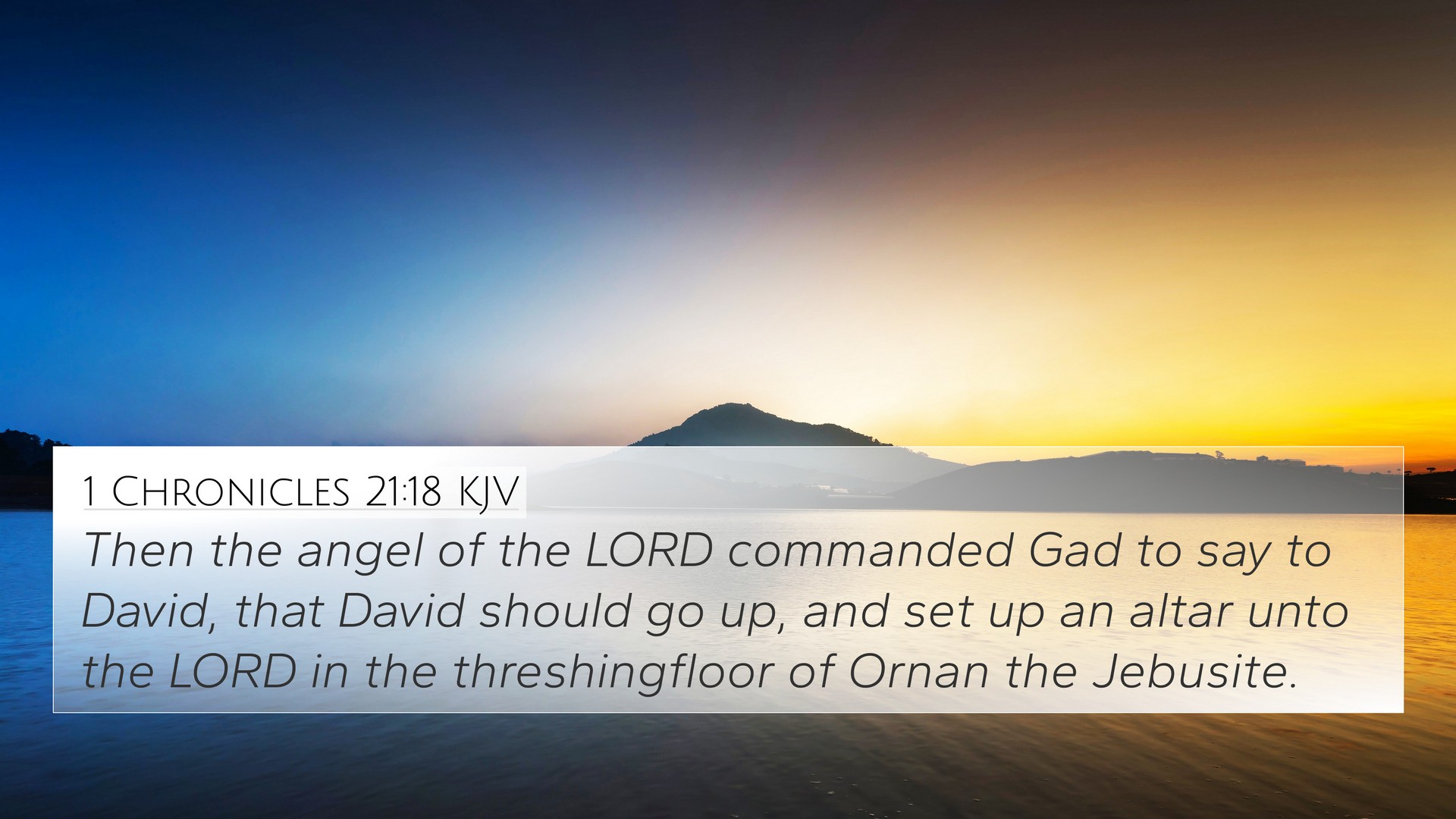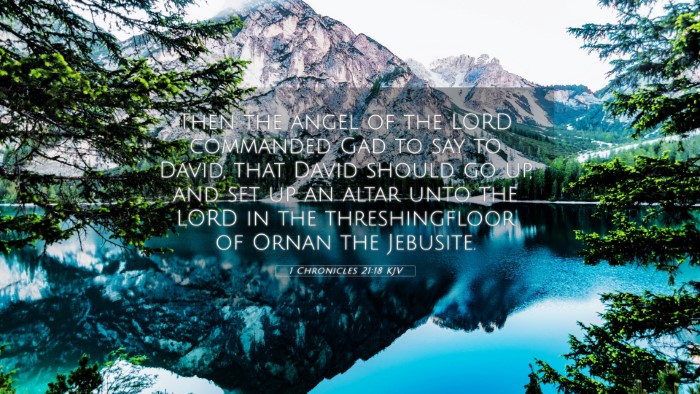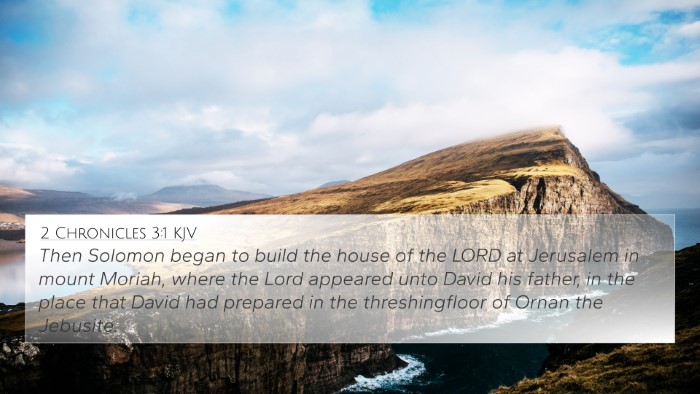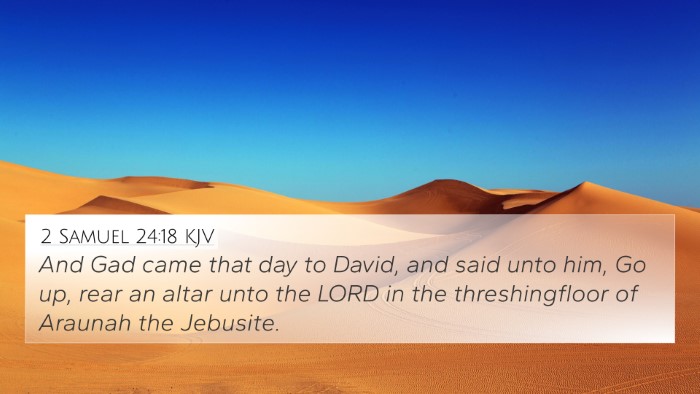Understanding 1 Chronicles 21:18
Bible Verse: 1 Chronicles 21:18 - "Then the angel of the LORD commanded Gad to say to David that David should go up and erect an altar unto the LORD in the threshingfloor of Ornan the Jebusite."
Summary of Meaning
This verse marks a pivotal moment in the narrative of King David, illustrating God's response to his actions. David had conducted a census of Israel, which led to divine displeasure resulting in a plague. The angel of the LORD, representing God's judgment, commands David, through the prophet Gad, to build an altar to the LORD. This act of building the altar signifies repentance and a means to seek atonement for his sin.
Insights from Commentaries
Matthew Henry's Commentary
Henry emphasizes the importance of obedience in David's response to God’s command. He notes that the building of the altar symbolizes a restoration of worship and a genuine act of humility before God. David recognizes the necessity of atonement and seeks to rectify the wrongs incurred by his actions.
Albert Barnes' Commentary
Barnes discusses the significance of the location of the altar—Ornan's threshing floor. He highlights that this site would later become the location of the Temple, thus tying David's immediate act of worship to the larger narrative of Israel's relationship with God. Barnes also reflects on the themes of sacrifice and worship which are essential in the restoration process.
Adam Clarke's Commentary
Clarke focuses on the role of Gad and the angel of the LORD, showing a divine providence at work. He comments on the urgency of the command, indicating that David’s path to redemption begins with this significant act of worship and obedience. Clarke also touches on the theological implications of sacrifice, noting that it foreshadows the ultimate sacrifice through Christ.
Cross-References and Thematic Connections
1 Chronicles 21:18 connects with several other Scriptures that illuminate its themes of repentance, worship, and divine instruction. Here are some key cross-references:
- 2 Samuel 24:18-25: This parallel account discusses David's sin and God's instruction to build an altar, reinforcing the consequences of wrongdoing and the necessity of atonement.
- 1 Chronicles 22:1: After David purchases the threshing floor, he prepares to build the Temple, connecting this moment of repentance with future worship.
- Exodus 20:24: God's command regarding altars points to the importance of sacrifice and worship in maintaining a covenant relationship with Him.
- Hebrews 9:22: The New Testament reinforces the concept that "without the shedding of blood, there is no forgiveness," tying the sacrificial system back to this moment of worship.
- James 4:10: The call to humility is echoed, as David humbles himself before God through the act of building the altar.
- Psalm 51:17: Highlights the true nature of worship as a broken spirit and contrite heart, relevant to David's actions here.
- Acts 17:30: Indicates that God commands all people everywhere to repent, aligning with David's need for reconciliation.
- Romans 12:1: The appeal to present one's body as a living sacrifice parallels the call to worship and dedication found in building the altar.
- Luke 9:23: Jesus' call to take up one's cross connects with the theme of sacrifice inherent in David's actions.
- John 4:24: Worshipping God in spirit and truth reflects the essence of David's worship and the establishment of the altar.
Conclusion
In summary, 1 Chronicles 21:18 encapsulates a critical moment of repentance in King David's life, where he is instructed to build an altar after recognizing his sin. The commentaries of Matthew Henry, Albert Barnes, and Adam Clarke together emphasize themes of obedience, sacrifice, and worship, which are central to the narrative. Through cross-references, we see a broader theological network that connects this moment to the entirety of Scripture, reinforcing the importance of atonement and worship in our relationship with God.







